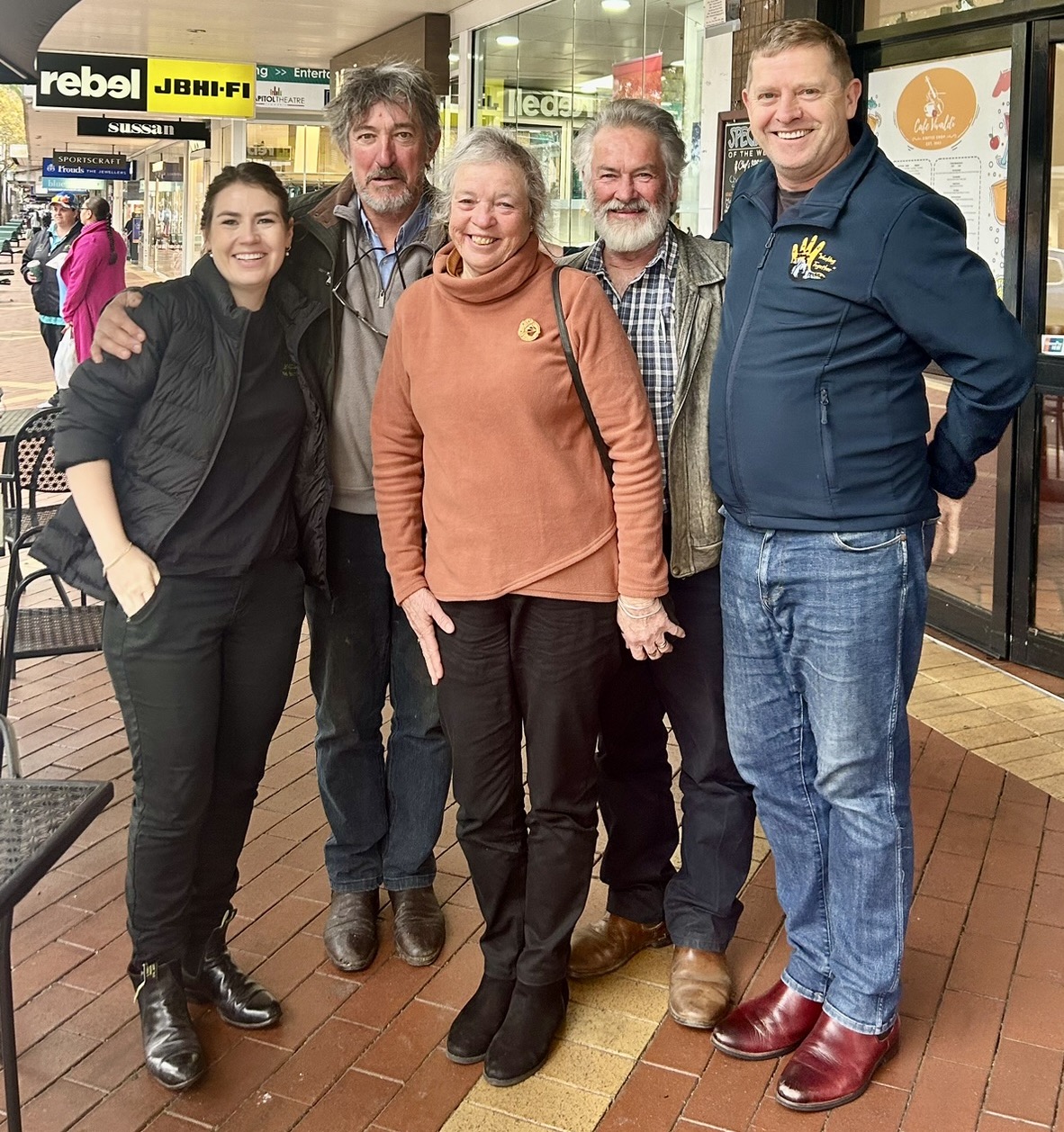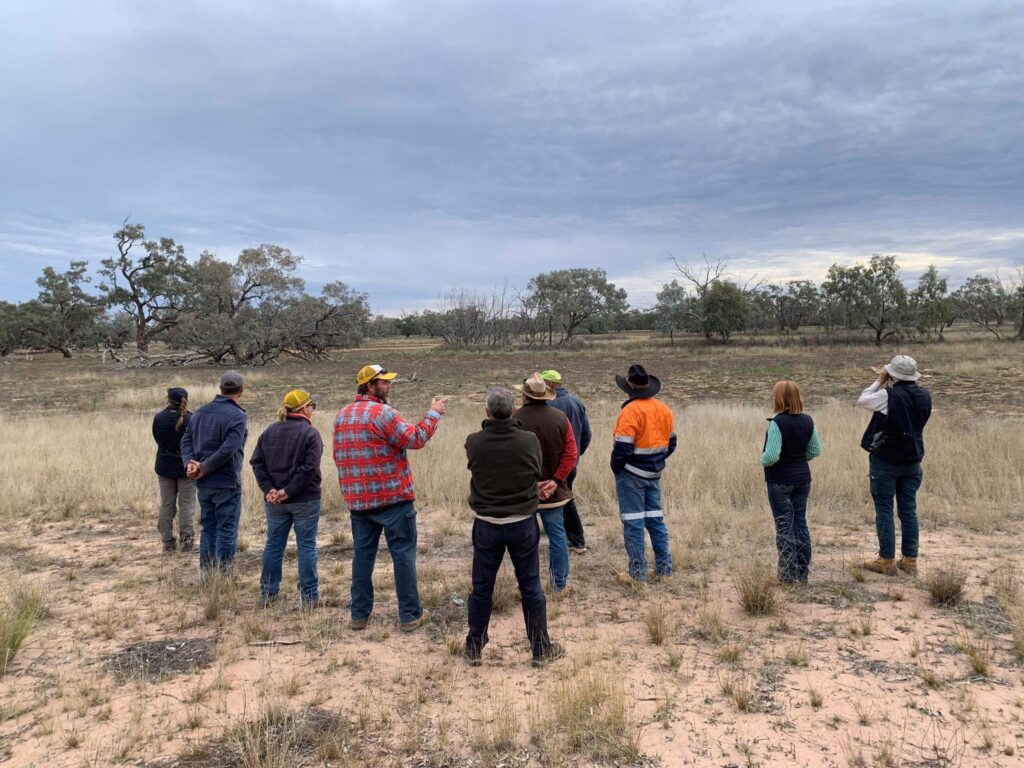LANDCARE NSW: AMPLIFYING REGIONAL VOICES FOR EFFECTIVE ADVOCACY
As the CEO of Landcare NSW, I am committed to ensuring that the voices of our diverse regions resonate powerfully in our advocacy efforts with government and parliament.
Our recent State Advisory Council (SAC) meeting in August provided a wealth of insights into the unique challenges and priorities of each region, which will shape our strategies and guide policymakers on what Landcare in NSW needs to thrive.
Key themes emerging from these discussions include supporting the growth of volunteers, recruiting new coordinators, addressing the increasing administrative burden of grants, and fostering strong partnerships with the NSW Government.
Here are some of the key concerns and aspirations from across our vibrant communities which I gleaned from the SAC meeting, and I think will be helpful for our readers to hear.
The South East region aims to solidify the current Landcare Enabling Program by launching a regional training program that champions personal development and fosters collaboration among the 14 networks. This initiative is designed to enhance the skills of coordinators and strengthen bonds between networks, thereby boosting the overall effectiveness of Landcare activities.
In the Central Tablelands, the top priority is to streamline the roles of the Regional Landcare Coordinator (RLC) and the Regional Administration Support Officer (RASO) to reduce the administrative burden on local coordinators. By clearly defining these roles, we can ensure local networks receive consistent and meaningful support. Additionally, the region highlights the importance of securing diverse funding sources to maintain long-term sustainability.
Greater Sydney is focused on enhancing visibility and capacity through events like the biennial Greater Sydney Gathering and improved reporting mechanisms for the NSW Landcare Enabling Program (LEP). They are also working on expanding networks in areas without Local Landcare Coordinators (LLCs) and exploring corporate engagement and fee-for-service opportunities to fund their dynamic activities.
The Hunter & Mid Coast regions are prioritising rainforest preservation and restoration, boosting engagement with schools and local councils, and improving regional communications to raise the profile of Landcare activities.
The Murray region is developing strategic directions, ensuring robust communication across districts, and building strong relationships with stakeholders to enhance project delivery capacity.
In Murrumbidgee, the focus is on fostering relationships between First Nations People and farmers, securing funding for large on-ground works, and zeroing in on carbon and natural capital projects.
The New England region is centred on resilience, disaster preparedness, and strong partnerships with local government and schools, while the North Coast region is navigating the complexities of the Landcare Enabling Program and engaging local communities through various vibrant events.
The North West is promoting volunteerism growth, natural capital, carbon markets, and strategic planning, and the Western region is focusing on emerging partnerships, staff recruitment, and leveraging social media to raise the profile of their activities.
Advocacy for Support of Landcare in NSW
The insights from the recent SAC meeting underscore the pressing need for targeted support and funding to address the specific challenges and priorities of each region.
As we continue to advocate for Landcare in NSW, it is vital that government and parliament understand the diverse needs of our regions.
From securing long-term funding to enhancing training programs and building strategic partnerships, these efforts are important for the sustainability and growth of Landcare across the state.
Additional Important Areas of Advocacy
I am also hearing that the following matters are also important that Landcare regions want advocacy on:
- Building on NSW Government Investment of Landcare LEP 3 (2023-2027): Emphasise the need for additional funds to support on-the-ground projects and highlight the potential of the established 126 Landcare coordinators. We must also work to get Landcare in front of other government agencies so we are seen as a greater resource for government in solving state NRM and related problems.
- Monitoring, Evaluation, and Reporting (MER or MERI): Stress the need for robust MERI systems to track project progress and effectiveness, highlighting the role of MERI in securing ongoing funding and support. We need to be more effective in telling the story of our impact across the state.
- Multiple Benefits (Not Single or Co-benefits): Promote a holistic approach to environmental projects to achieve multiple benefits and highlight the efficiency and value of integrated solutions. This is particularly relevant in the emerging area of natural capital.
- Biosecurity and Disaster Preparedness: Broaden the focus (of Landcare in NSW) to include environmental biosecurity alongside agricultural biosecurity, emphasising the importance of protecting natural ecosystems from invasive species and diseases. This focus is not just limited to biosecurity but also includes disaster preparedness and potentially other areas yet to be defined.
- Funding Stability and Administration: Advocate for longer-term grants to provide stability and allow for comprehensive project planning and implementation, addressing the challenges faced by Landcare groups with short-term funding cycles, and emphasising the need for certainty. Additionally, regions are concerned about the administrative burden and the potential loss of staff.

Landcare NSW CEO Turlough Guerin and Project Manager Katie Caldwell meeting with Tamworth Regional Landcare Association
CALL TO ACTION
With only 20 months before Landcare NSW needs to present a strategic business case articulating our case for another government-funded program (i.e. for the period post 2027), we are turning our minds to getting prepared for that period.
We have much to do now to demonstrate to our main funder what we have achieved. I want to hear from all regions and networks on all the issues where you expect to see a better partnership with Local Land Services (LLS) and our other government partners.
Your feedback is essential to ensure we are addressing the most pressing concerns and working together effectively to achieve our shared goals.
Let’s continue to strengthen our collective voice and build a more resilient, sustainable, and thriving Landcare community.
Turlough Guerin CEO, Landcare NSW
